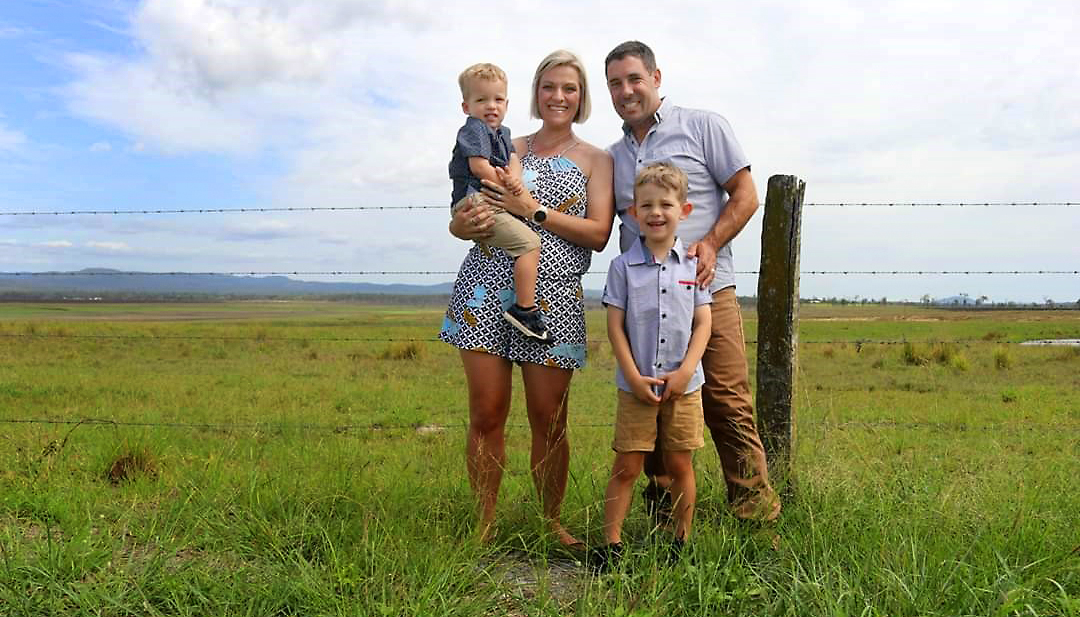Have you ever heard of NF1 (Neurofibromatosis)?
Most of us probably have not.
Despite NF1 being one of the most common of the rare genetic conditions, it remains relatively unknown in the general population.
This is something that Jennifer Pearsall wants to change.
Affecting up to one in 3000 individuals NF1 gives rise to the potential for benign tumours to grow on nerves anywhere in the body including the brain and spine.
Jennifer herself had never heard of NF1 when her baby, Grayson, 3, was diagnosed just over a year ago.
“We just thought he had a few birth marks come up, we just thought they were really cute,” she said.
“But when Grayson was taken to hospital from a reaction to eating egg, it was the birthmarks (called café au lait spots) that the paediatrician was worried about.”
The issues with the condition being unknown started to affect the family immediately with many other doctors and nurses not knowing about NF1 leading to different advice and recommendations.
“One doctor told me, there is a blood test to determine that, then another doctor would say, no that is not the case,” she said.
“This is a problem and there is very limited education in the medical world and in the community.
“As a mum that makes it difficult, I don’t have a medical degree, I felt like I was on my own journey to discover all about it.”
NF1 is a highly variable condition, some people have it so mildly they don’t know they have it, others require medical intervention and some have life-threatening complications.
Grayson, who just turned three, has MRIs to determine the changes in his condition.
“In Grayson’s case, he currently has tumours in his brain, which you can physically feel,” Jennifer said.
“He also has tumours on his spine which you can see, they are like a cluster of lumps.
“His last MRI has shown that his optic nerve was starting to thicken in both his eyes.
“Which indicates an optic nerve glioma (tumour) on the nerve that controls vision.”
Jennifer says she is staying positive because she has to.
“The way I have dealt with it is to talk to people, education them and raise money, which I mostly do by running,” she said.
“I recently ran the Gold Coast Marathon to raise money and awareness for the Children’s Tumour Foundation (CTF).”
Jennifer is in the RAAF working as a Personnel Capability Specialist at 35 Squadron, who have helped her raise $2,500.
The whole family gets behind the fundraising effort with her husband Tim and son Thomas, 6, collecting bottles and cans.
“Thomas and his friends collect the cans and bottles, and when they get cashed in, he puts the money into his own donate box. He has his own little project so he can contribute as well,” Jennifer said.
Jennifer is currently deployed in the Middle East on Operation Accordion.
“I’m also running 1000km while I am over here and I’m organising some challenges for other Defence members to become involved,” she said.
“I currently raising money to support a trial for a drug that may be able to suppress the grown of tumors, which would be a massive break through.
“I would also like to see a NF1 specialist clinic open in Brisbane. This would bring all the specialists into one space.
“Currently there are only centres in Sydney and Melbourne.
“Tumours should never be a person’s normal.”
You can donate to Jennifer’s fundraising page here.
Neurofibromatosis facts
Neurofibromatosis (NF) is a group of three genetic conditions which gives rise to the potential for benign tumours to grow on nerves anywhere in the body.
NF also affects the development of other systems and tissues including; the cardiovascular system, bones, skin, brain, eyes, respiratory system, gastrointestinal tract and hormonal system.
The three types of NF are distinct: NF1, NF2 and Schwannomatosis. If you have one type it cannot turn into another form of NF.
They are each caused by a different gene, which are located on different chromosomes.
Approximately half (50%) of people affected by NF1 will be the first person in their family to have NF1. This is also the case with people affected by NF2. Schwannomatosis, however, is more commonly caused by a spontaneous change to the gene involved as 85% of those affected are the first in their family to have the condition.
NF is a progressive condition and there is currently no cure.
Jennifer and Grayson after the Gold Coast Marathon

